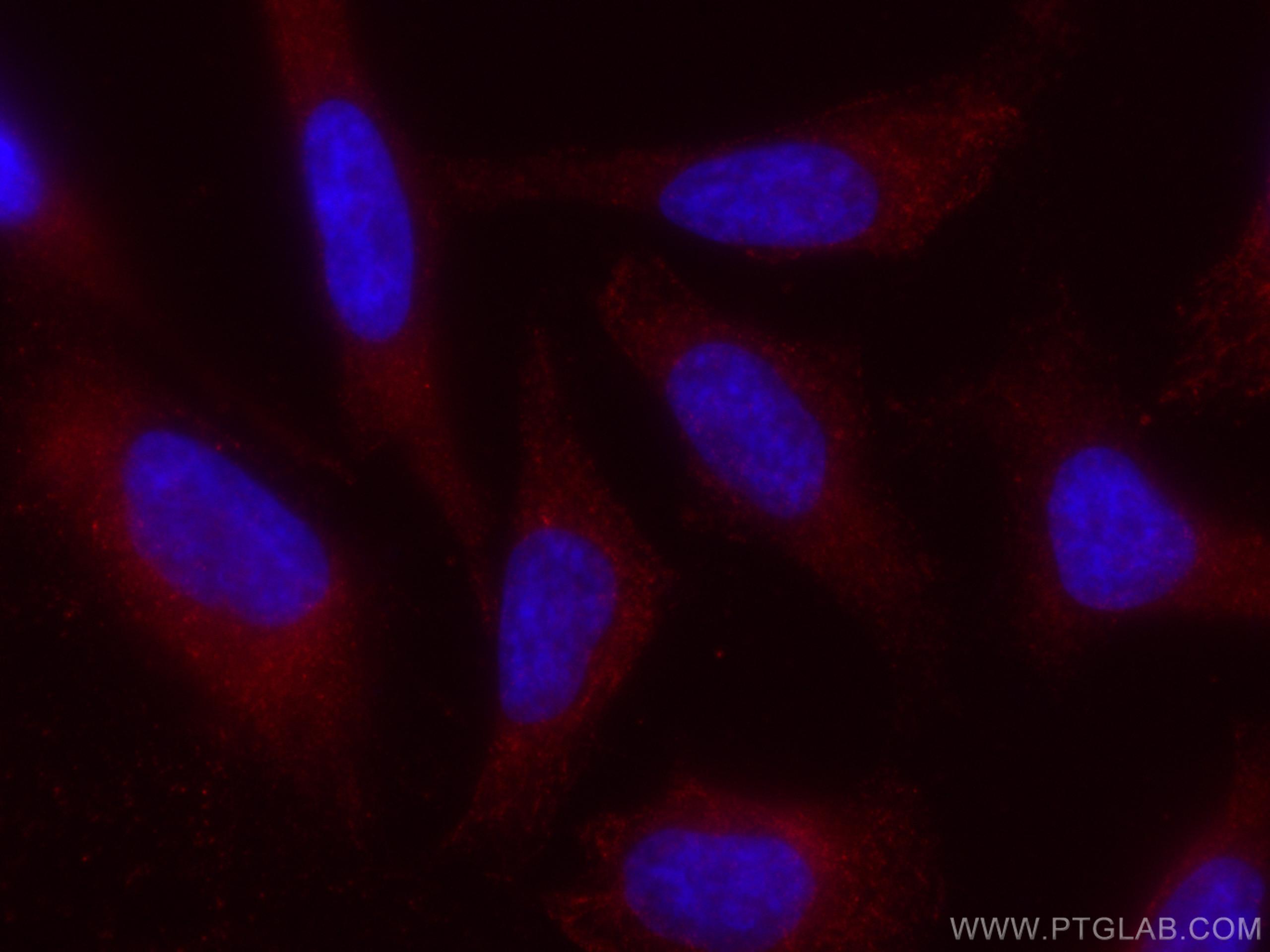验证数据展示
经过测试的应用
| Positive IF/ICC detected in | HeLa cells |
For other applications, we recommend the unconjugated version of this antibody, 66088-1-Ig
推荐稀释比
| 应用 | 推荐稀释比 |
|---|---|
| Immunofluorescence (IF)/ICC | IF/ICC : 1:50-1:500 |
| It is recommended that this reagent should be titrated in each testing system to obtain optimal results. | |
| Sample-dependent, Check data in validation data gallery. | |
产品信息
CL594-66088 targets NCALD in IF/ICC applications and shows reactivity with human, mouse, pig samples.
| 经测试应用 | IF/ICC Application Description |
| 经测试反应性 | human, mouse, pig |
| 免疫原 | NCALD fusion protein Ag18760 种属同源性预测 |
| 宿主/亚型 | Mouse / IgG2a |
| 抗体类别 | Monoclonal |
| 产品类型 | Antibody |
| 全称 | neurocalcin delta |
| 别名 | NCALD, neurocalcin delta |
| 计算分子量 | 193 aa, 22 kDa |
| GenBank蛋白编号 | BC036098 |
| 基因名称 | NCALD |
| Gene ID (NCBI) | 83988 |
| RRID | AB_2919946 |
| 偶联类型 | CoraLite®594 Fluorescent Dye |
| 最大激发/发射波长 | 588 nm / 604 nm |
| 形式 | Liquid |
| 纯化方式 | Protein A purification |
| UNIPROT ID | P61601 |
| 储存缓冲液 | PBS with 50% glycerol, 0.05% Proclin300, 0.5% BSA , pH 7.3 |
| 储存条件 | Store at -20°C. Avoid exposure to light. Stable for one year after shipment. Aliquoting is unnecessary for -20oC storage. |
背景介绍
NCALD(Neurocalcin-delta) is a member of the EF-hand calcium-binding protein superfamily.It may be involved in the calcium-dependent regulation of rhodopsin phosphorylation.It is a high-affinity Ca2+ sensor (Kd of approx. 0.6 uM), which is most abundantly expressed in the Purkinje cells of the cerebellum(PMID:11964161).This antibody is specific to NCALD.
实验方案
| Product Specific Protocols | |
|---|---|
| IF protocol for CL594 NCALD antibody CL594-66088 | Download protocol |
| Standard Protocols | |
|---|---|
| Click here to view our Standard Protocols |
